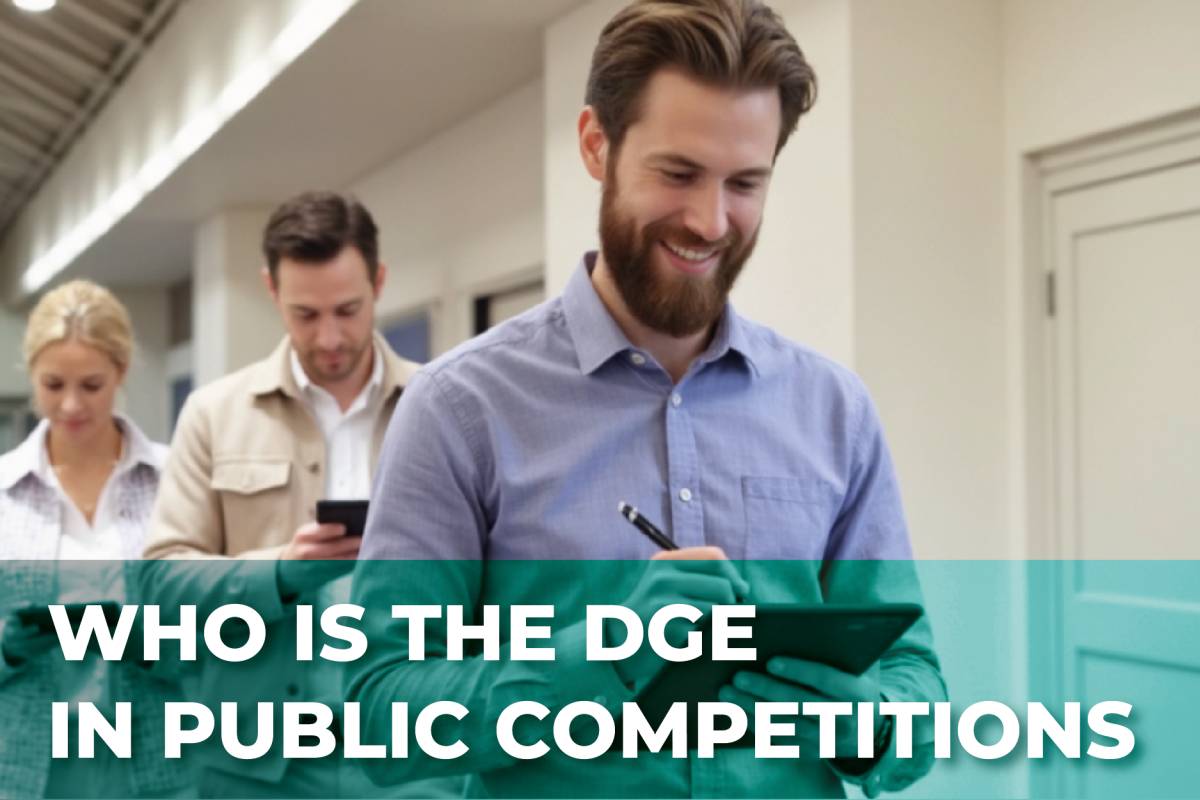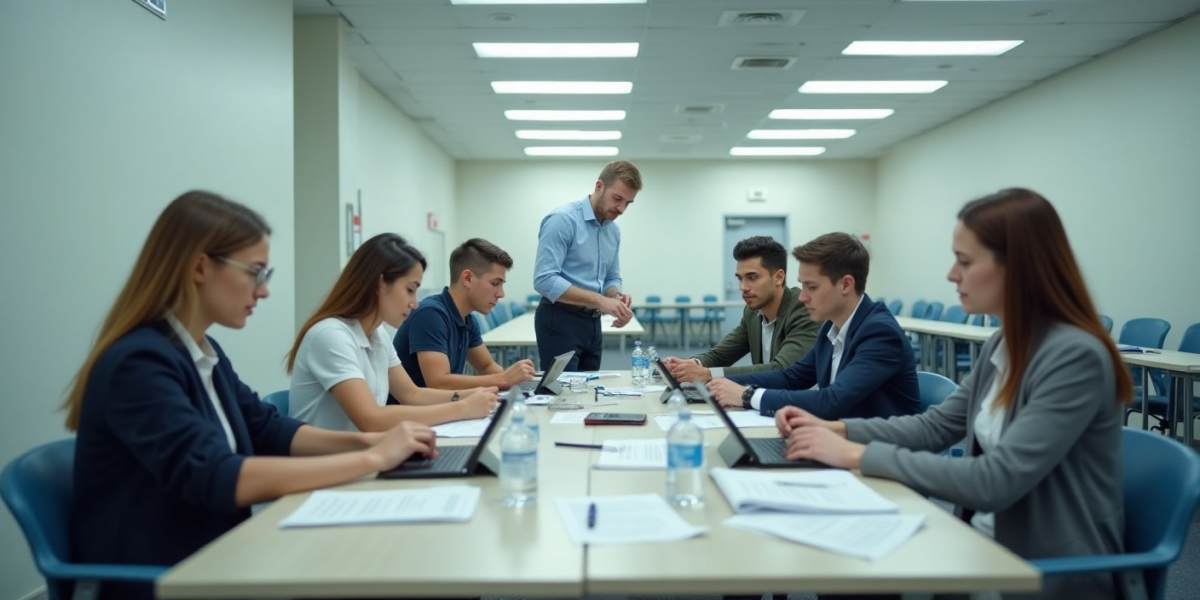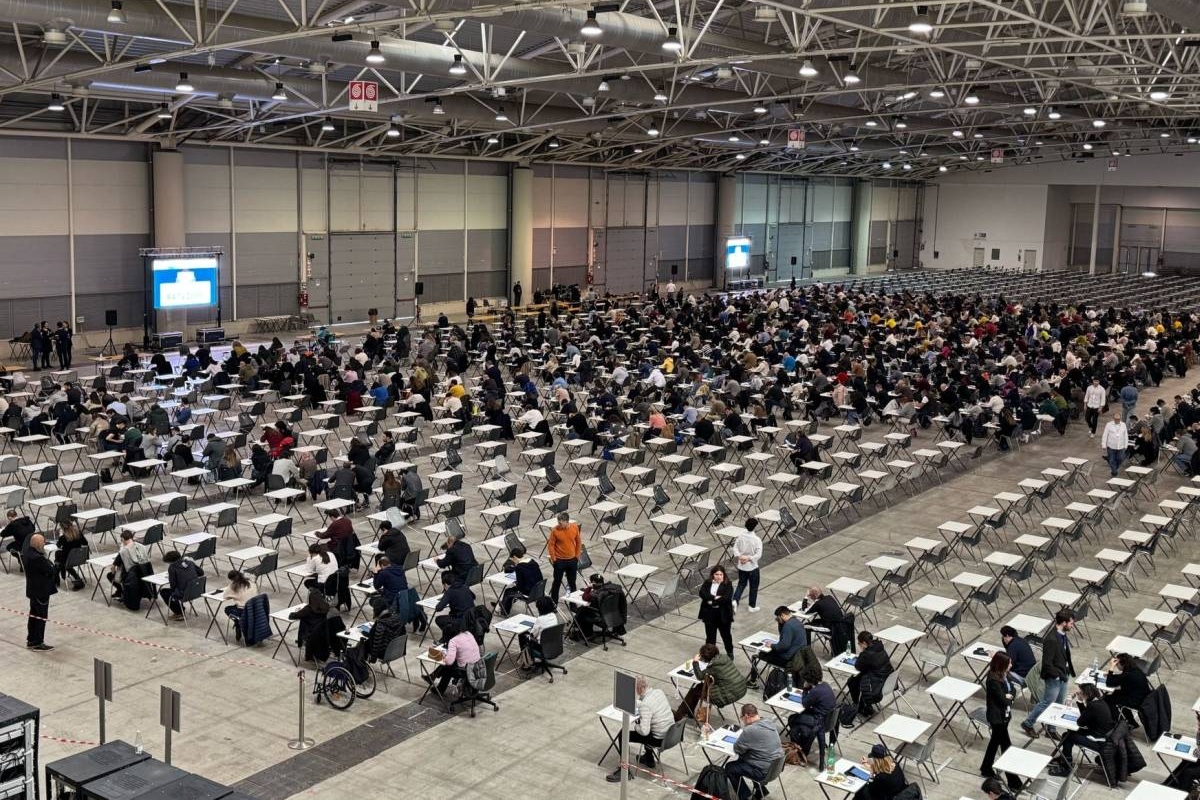The organization of public competitions has undergone a radical change thanks to digitalization and innovation in logistics processes. To find out more about the crucial role of the General Event Delegate (DGE), we interviewed Pierluigi, a Recrytera professional, who shared his experiences and the challenges facing the sector.
Interview with Pierluigi
Hello Pierluigi. Thank you for agreeing to answer our questions about your work as DGE at Recrytera.
What attracted you to this job?
‘I have always had a strong interest in organization and management, combined with a passion for technological innovation. Working in the management of public competitions allows me to reconcile my propensity for logistics with my desire to contribute to a process that offers opportunities and transparency to all. Digitization has opened new horizons in this field, making management more transparent and accessible.’
What are the tasks of the DGE?
‘The DGE is responsible for managing the warehouse of the territory entrusted to him, organizing the movements of all inventoried material using ERP management software. He is also responsible for training, managing, and organizing the teams of technicians who support him during digital testing, and, if necessary, requesting travel (hotel bookings, hire of transport vehicles) for events outside the area where the warehouse is located. Furthermore, he ensures the correct preparation of the competition spaces before events and manages the creation of the tests on the digital platform, interfacing with the members of the examination commission and finally guiding them through the correct anonymous correction procedure. Finally, he trains and manages the external reception and supervision teams to ensure that the tests run smoothly.’
What skills do you need to be a general events delegate?
Core skills include a good knowledge of public competition law, and the digital platforms used. Time management and problem-solving skills are essential, as is the ability to work in a team. You also need to be able to manage the roles of all staff involved in the competition process to ensure that each step of the process is carried out efficiently and to standard.
Can you tell us something about the type of activity your profession involves?
My job concerns the management of the competition event in all its operational phases. I am responsible for organizing the staff involved, creating digital proofs and managing them on our competition platform. I also set up the competition rooms and supervise the tests. In addition, I support the selection boards throughout the competition tests, ensuring that their requirements are met and that the process runs smoothly.
How does Recrytera inform you about these competitions?
‘Our company informs us through communications that arrive directly in the inbox of the company profile. Another key tool for sharing information about each competition assigned to a DGE is Microsoft’s SharePoint platform, where all the information about the competitions is updated in real time. Furthermore, in addition to weekly update meetings, each Procedures Manager maintains direct contact with the DGEs to update them on all the particularities and needs of each assigned event.’
For several types of recruitment, do you always have the same approach, or does it change depending on the event to be managed?
‘As DGE, my job is to maintain the high standard of the services offered by my company, regardless of the size of the event. Although the specifics may vary, the objective is always to ensure flawless organization, respecting the established timeframes and procedures.’
What are the main challenges a DGE faces in managing a public competition?
‘One of the main challenges is certainly managing the bureaucratic complexity and the coordination of all the actors involved. Another difficulty is to maintain focus and calm in nervous or demanding situations, which can occur during the execution of the tests, especially in high-pressure contexts.’
How has the competition sector changed in recent years and what role does digitization play?
‘In recent years, digitization has radically transformed our sector. Before, much of the activity was manual and paper-based, but today we can manage everything online, from entries to assessments. This has made competitions more accessible and transparent, reducing management time and increasing data security. Digitization also allows us to collect and analyze data more precisely, constantly improving processes.’
What advice would you give to those who want to pursue this career?
‘I would recommend having a solid background in public regulation and event management, as well as developing digital skills, as technology is now crucial. In addition, the ability to work under pressure and suitable time management are crucial skills. I also recommend staying up to date with regulatory news and new technologies that are changing the industry.’
How has Recrytera innovated competition management compared to traditional methods?
‘Our company has adopted a methodology designed to automate and speed up selection activities, improving the entire management and better integrating all organizational and production processes. This reliable digital system ensures meritocracy and fairness at all stages, as well as unchangeability, inalterability and anonymization of data. In addition to ensuring significant ecological savings by eliminating paper, this innovation has optimized time and service quality.’
The interview with Pierluigi allowed us to understand the value and complexity of the DGE role. Thanks to digitization and advanced tools, the public competition sector is becoming increasingly efficient, ensuring transparency and accessibility for all candidates.


